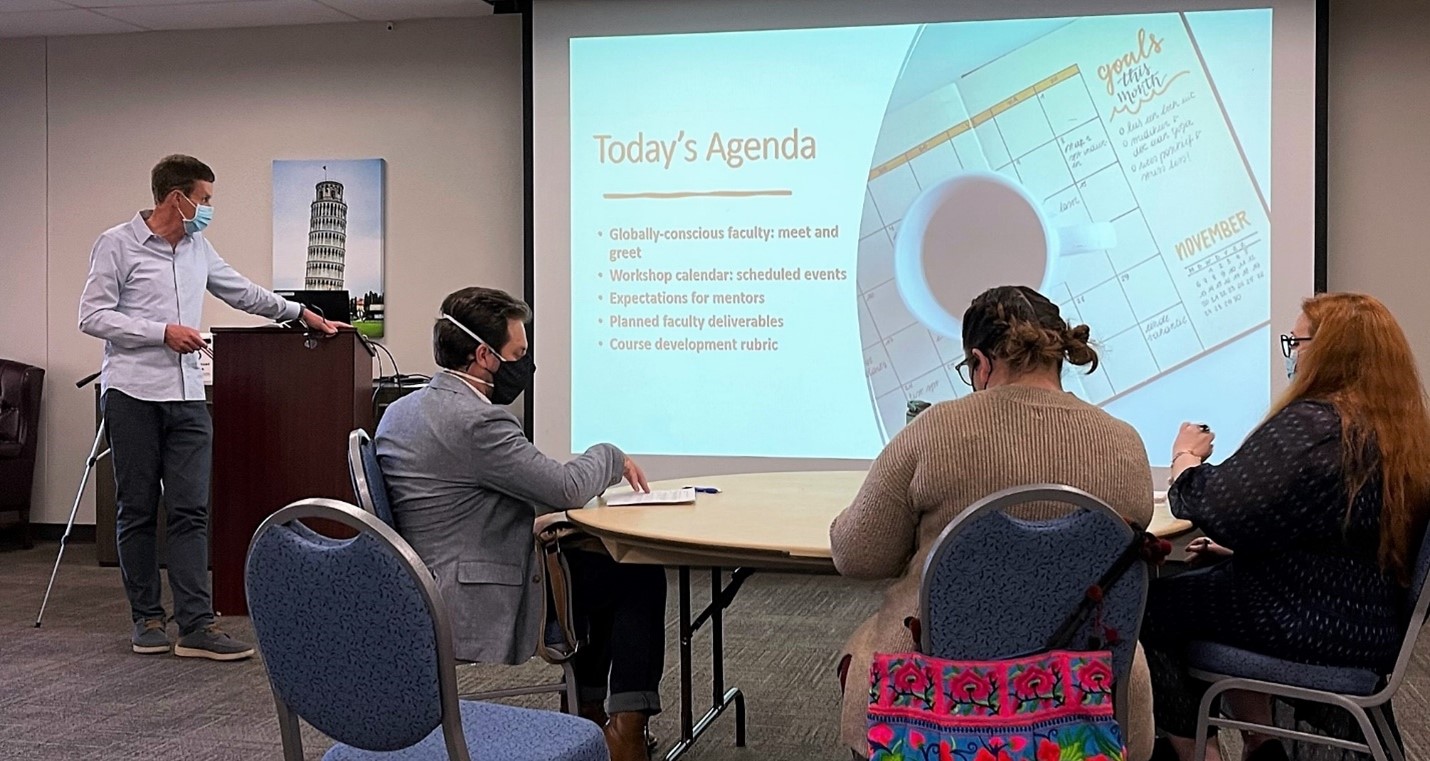Paul Pare
Faculty Spotlight: Paul W. Paré, Ph.D.
Professor of Chemistry, and Director of the Center for Global Communication
Dr. Paul W. Paré joined Texas Tech University in 2000 and is a Professor in the Chemistry & Biochemistry Department. In 2016, he accepted the role of Director at the newly created Center for Global Communication where he helped to develop teaching modules to expose undergraduates to global challenges through programs he developed and coordinated in partnership with the undergraduate courses such as RaiderReady, Intro. to Human Sciences, Intro. to Teaching, Intro. to Marketing and Political Science. In 2021, he moved the CGU operations to the Office of International Affairs where he also works closely with the Sevilla Center, CMLL and the College of Engineering and developed a study-abroad assessment tool that cultural, motivational, and language skills with recommendations to help prepare and assess student preparedness for study abroad activities. In 2021 he developed a new year-long teaching/learning/mentorship program, Teaching Without Borders, a workshop to help faculty integrate global and multicultural materials with course content to inspire and empower students to pursue global challenges.
Tell us about the work you do in Brazil and other countries and how that informs your teaching?
I have had a longstanding collaboration with researchers in Brazil investigating the role of beneficial bacteria in promoting plant growth and priming plant protection against pathogens and herbivores. Our research team brings different experimental experts to the project with my Texas Tech group focusing on basic-biology questions such as what are the chemical signals that relay information between soil bacteria and plant roots? In many cases, we utilize the model plant Arabidopsis. In contrast, researchers in Brazil focus on agricultural applications to examine whether findings identified in the lab hold true under field conditions using crop plants such as cotton, corn, soybean and cassava. In this collaboration, we are particularly interested in how beneficial bacteria augment plant protect against salt toxicity, insect feeding, nutrient deficiency and drought stress. By working with faculty and students from diverse cultural and training backgrounds, it is exciting that we identify divergent questions to a common project. Through such collaborations we identify shared instructional practices that are effective across our two cultures as well as practices that only work for one group. With international research and teaching not always working out as expected, developing greater flexibility and resiliency in international endeavors is essential.
How did you get involved in international research and helping to internationalize the TTU curriculum?
Funding agencies such as NATO and the Fulbright Scholars Organization have provided opportunities to meet, travel and collaborate with international researchers; events have included an exchange program with Georgian research from Tbilisi and Brazilian researchers in Piracicaba and Lavras. This international exposure fostered an interest in developing global programming at Texas Tech. To promote communication skills and knowledge of global issues for students, Texas Tech initiated a campus-wide initiative: Communicating in a Global Society. The program is managed by the Center for Global Communication in which I served as director. Recently, programming has been shifted from the Office of the Provost to the Office of International Affairs.
Tell us about your exciting new program on Teaching Without Borders
Teaching Without Borders is composed of a series of faculty-development workshops utilizing a peer-mentoring approach. Programming focuses on faculty training and identifying resources for course internationalization. The goal of the program is offer students a greater understanding of global challenges from discipline-specific perspective. The program also addresses cultural competency; that is, to increase student awareness of distinct cultural customs and traditions that motivate people, dictate professional and personal interactions, and can even define what we find pleasurable. The two-semester program presented as either presentations/discussion-panel discussions includes four external experts as well as Texas Tech specialists that cover eight topics of internationalizing courses.

What advice would you offer to an international student or faculty who has come or are considering coming to Texas Tech?
As a prospective international student, scholar, or faculty member, with Texas Tech being a Top public University in the U.S., a Hispanic Serving Institution, and a Carnegie Classified, very high research active Institution, this is an exciting time to be a part of the Texas Tech community. The Office of International Affairs, with support from student affairs and the local Lubbock community provide an outstanding opportunity for students as well as scholars to have learning experiences that are academically challenging, professionally relevant, and personally engaging.
International Affairs
-
Address
601 Indiana Avenue, Lubbock, TX 79409-5004 -
Phone
806.742.3667 -
Email
oia.reception@ttu.edu
